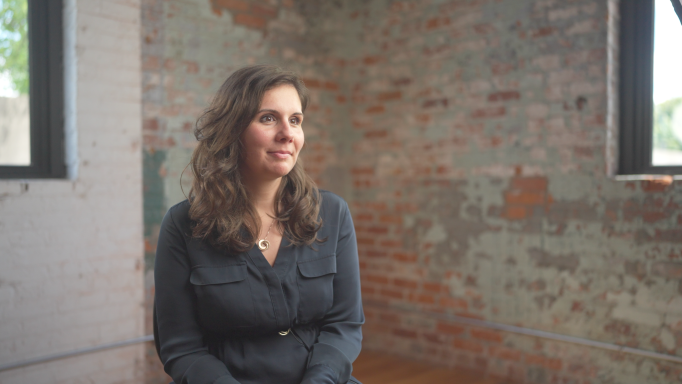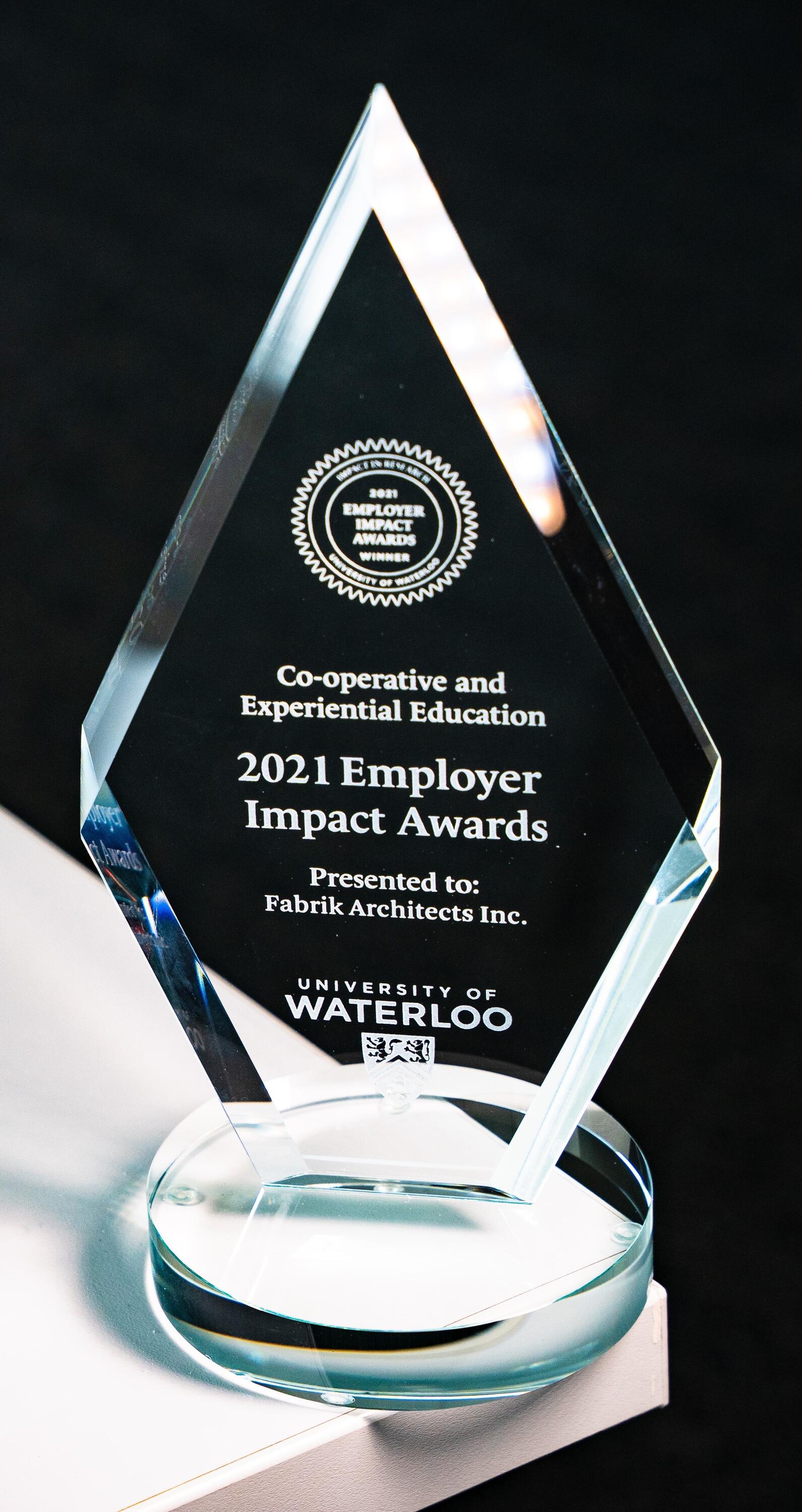Co-op students make an impact on real-world architecture at Fabrik
By: Mila Jokovic (she/her)
Fabrik Architects gives co-op students the autonomy to use and expand their knowledge on a wide range of real-world architectural projects.
As a small business and ongoing employer of Waterloo co-op students, Fabrik fosters a tight-knit work environment where students are given responsibilities similar to some of the company’s full-time employees.

Elisia Neves (MArch’ 12)
Founder and CEO of Fabrik Architects
Fabrik is an employer that demonstrates all these qualities and gives co-op students the autonomy to use, expand and apply their knowledge.
“Our office is small and open concept so students can see the different stages of projects their colleagues are working on. Being in a small office gives them a variety of experiences beyond what they are working on daily,” says Fabrik’s founder and CEO, Elisia Neves (MArch’ 12).
“The co-op program allowed me to succeed in my career quickly,” says Neves.
Providing valuable experiences
In 2021, Fabrik hired nine Waterloo co-op students. Several of the co-op students at Fabrik returned to the firm for additional work terms and the opportunity to see their work come to fruition.
“Seeing my work come alive in the real world is inspiring. It shows that what I’ve learned in the firm and throughout my education can manifest into a real piece of work,” says Ali Khaja, a project designer and co-op student who returned to Fabrik for an additional work term.
Impact through research
Research is an important backbone of these responsibilities and something all students must learn to be successful.
“Research is integral in the design process. I use research to make sure I’m not approaching something with assumptions but making informed decisions,” says Khaja.
The students’ research efforts have been beneficial to Neves and the firm. “The research the students do supports the business incredibly because it’s giving us current design trends that we’re able to test on our next projects,” says Khaja. “It’s advancing every project we undertake.”


Research is highly prevalent in the architectural field and Fabrik ensures that its co-op students have all the resources necessary to succeed in their analyses.
Teaching students to distill the data into actionable pieces of information is immensely valuable at many levels of an organization. The experience in research that Waterloo co-op students received during their work terms at Fabrik is important and helps them to see the benefits of bringing curiosity into the workplace.
“Students have this drive to be unique and innovative and that’s one of the biggest benefits we get from hiring co-op students,” says Neves. “We’re always working on something new and exciting that no one’s tried before, and I think that’s how Fabrik, and our co-op students, are making an impact.”
Amid the COVID-19 pandemic, Fabrik found inspiration in new research around Pandemic Responsive Building Design. Being a relatively unexplored topic, Fabrik is now a leader in providing design research insights to the architectural industry in this space.
“Students are looking at the world of architecture and how the design of our spaces are going to change in the future based on what we’ve understood from going through a pandemic,” says Neves. “Because this is such a new topic, students are excited to be a part of that research.”
Within their research, students examine patterns within buildings, such as office spaces, and assess how assorted designs can fit into these patterns. The outcome of this endeavor will be safer and more resilient buildings post-pandemic.
Empowering students to lead
Ernest Lee, a junior technologist and current co-op student at Fabrik, has spent several work terms with the architectural firm.
Lee was given autonomy throughout his work terms, which he felt prepared him for the future.
“Autonomy is very noticeable at Fabrik,” Lee says. “We’re given the freedom to figure out what we’re most passionate about and determine the path we want to take in the future.”
Strong mentorship is also key to Fabrik’s success with students.
“Fabrik isn’t so compartmentalized, which gives me the freedom to design holistically,” says Adrian Hutchinson, junior designer at Fabrik.

Ernest Lee
Junior technologist and current co-op student at Fabrik Architects
Through working with Neves, Hutchinson learned how to research stakeholders and how to identify solutions tailored to different clients.
Fabrik helps us understand the needs and expectations of our research. Whenever we approach a project, Fabrik allocates the time, space and resources we need to be able to immerse ourselves in our research, clients, and the community.





